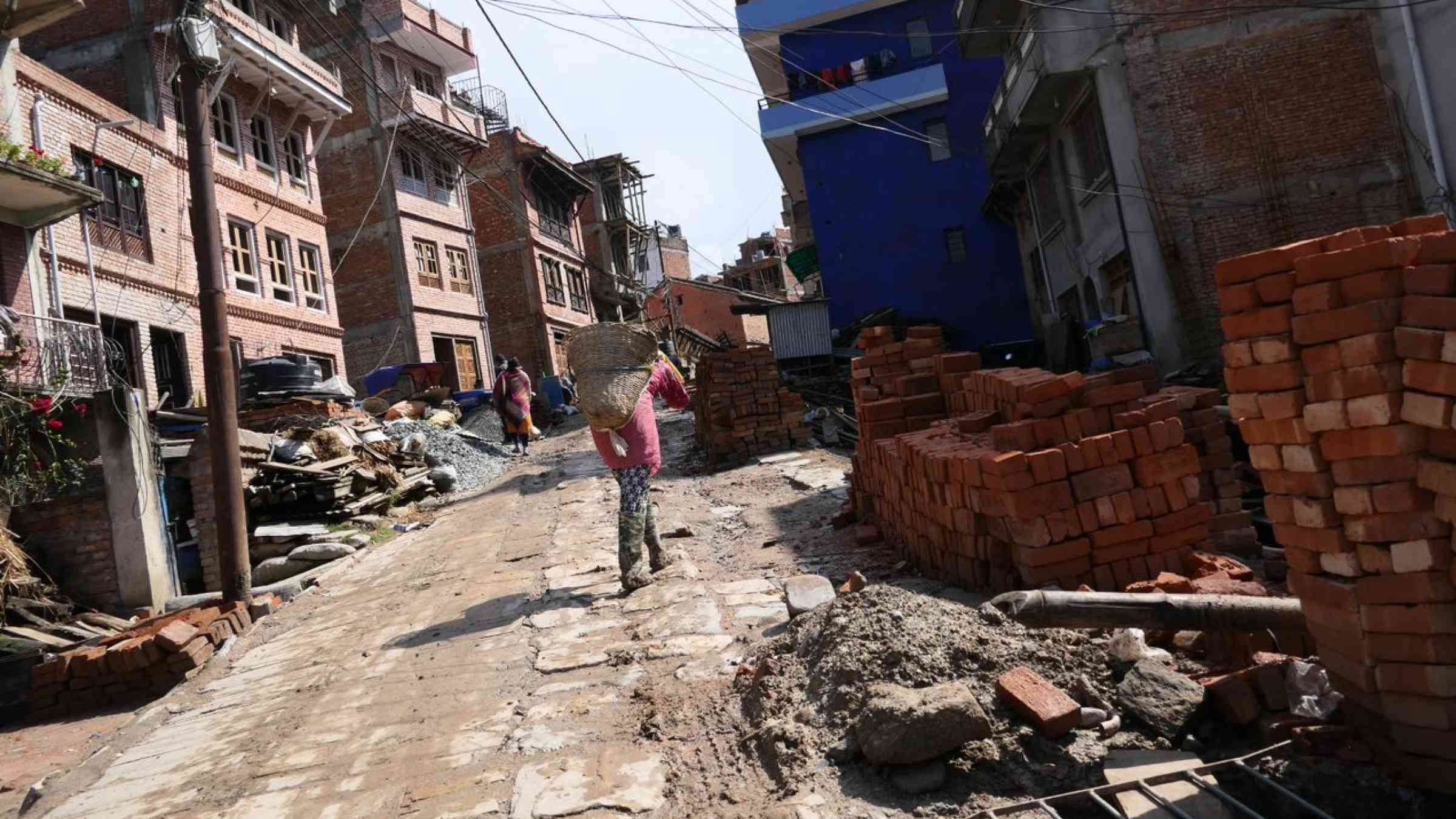Urban multi-hazard risk policy transitions for addressing systemic risk
The Sendai Framework urges national and subnational governments to address the understanding, quantification and appropriate policies and interventions to manage systemic risk. To open a constructive dialogue on entry points for decision making and action arising from work on multi-hazard urban risk reduction, this session brings together a diversity of perspectives drawing on the experiences of various stakeholders learning from the UKRI-GCRF Tomorrow’s Cities Hub.
The session advocates that a better understanding of systemic risk can be achieved by promoting people-centred decision making that accounts for the dynamic interactions between multiple hazards, vulnerabilities, capacities, and impacts across space. Our collective experience confirms that this framing enables policy actors to address the challenge of mainstreaming multi-hazard risk reduction into urban planning and development. This primarily consists of opening spaces for actors to engage in collaborative processes that bring local voices and science into policymaking at both city and national levels.
Session objectives
This session’s objectives include:
- Attempt to understand systemic risk from an urban, multi-hazard perspective, including viewpoints from academia, professional associations, national governments and international organisations.
- Consider ways to support the management of dynamic multi-hazard risk in cities and urban areas.
- Discuss innovative governance frameworks for mainstreaming multi-hazard risk into urban planning and development toward empowering the most at risk.
Registration
Moderator
- María Evangelina Filippi-Senior Research Associate, University of Bristol, UK
Speaker
- Elisa Sevilla -Professor, Universidad San Francisco de Quito, Ecuador
- Ramesh Guragain-Deputy Executive Director, National Society for Earthquake Technology (NSET), Nepal
- Anil Pokhrel-Chief Executive, National Disaster Risk Reduction and Management Authority (NDRRMA), Nepal
- Maryia Markhvida -Disaster Risk Management Expert Consultant, World Bank; Lecturer, Stanford University, US
Documents
Learn more
Read this section to learn more about multi-hazard risk assessment approaches and governance frameworks for DRR. Lessons learnt and to be discussed arise from the UKRI-GCRF Tomorrow’s Cities Hub.
Where do we stand
The concept of systemic risk raises both challenges and opportunities for the overarching understanding of disaster risk and its management, nowhere more urgently in the current global, rapid urbanisation. Multi-hazard perspectives can provide a nuanced set of lessons and action approaches through which to better understand and reduce systemic risk, especially in the context of rapid growth and expansion of cities and urban areas. At the heart of these lessons is the recognition that the translation of complex and dynamic understandings of multiple, interacting risks into practice requires innovation in data and its management, related analytical and communicative techniques, governance frameworks and financing mechanisms, in particular toward mobilising the principle of leaving no one behind. Understanding, governing and investing are three of the four priorities of the Sendai Framework, and systemic risk needs to be mainstreamed into each of these dimensions if we want to make progress in reaching the targets of this and other global frameworks by 2030.
Session guiding questions
- How is systemic risk understood or approached in your organisation/your work?
- How can a multi-hazard perspective better inform our understanding of systemic risk? What are the implications in terms of data, analytical modelling, governance and communication?
- What are the specific challenges and opportunities that rapid urbanisation pose for the management of systemic risk?
- How can consideration of systemic risk be more effectively incorporated into urban development or urban planning practice?

Agenda
Location
BNDCC 2-Ground Floor
Online access
Participation
Open to those registered for the conferenceInterpretation
ESDetails
Contact
Carmine Galasso c.galasso@ucl.ac.uk María Evangelina Filippi evangelina.filippi@bristol.ac.uk Mark Pelling mark.pelling@kcl.ac.uk